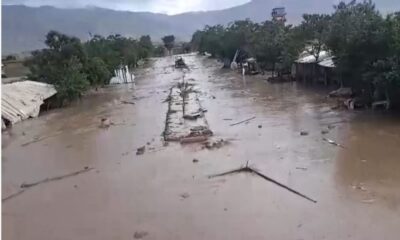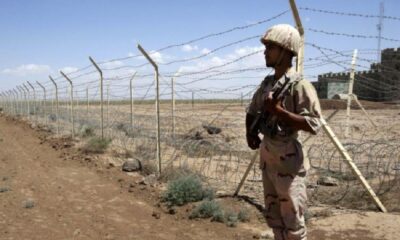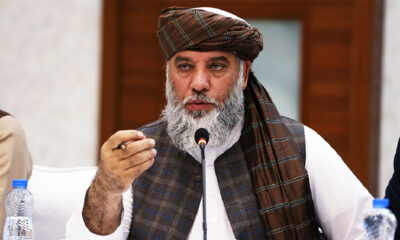Latest News
US launched flight relocation program for SIV applicants
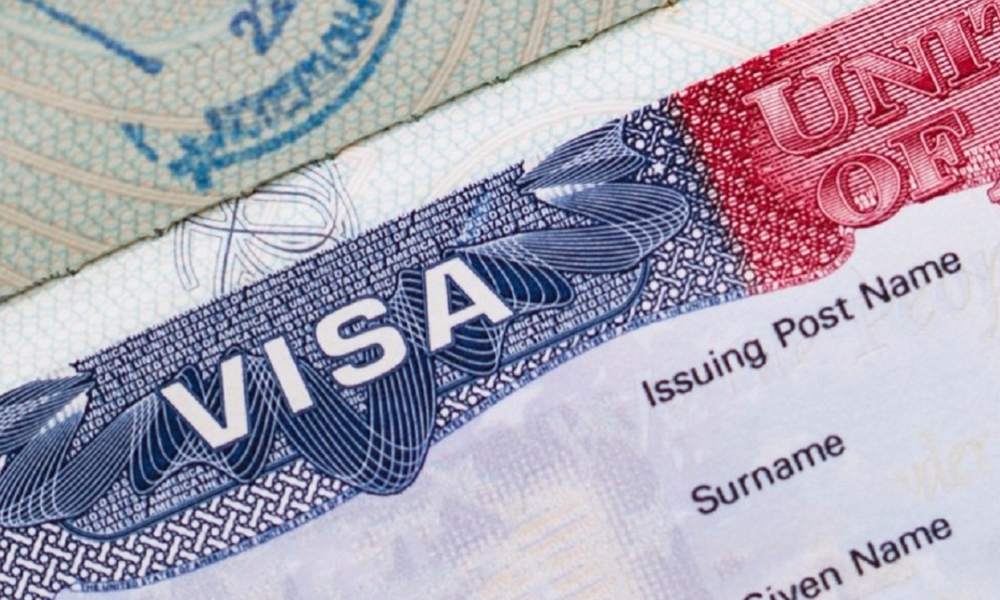
At President Joe Biden’s direction, the United States is launching Operation Allies Refuge to support relocation flights for Afghan nationals and their families eligible for U.S. Special Immigrant Visas (SIVs), the US embassy said in a statement.
Flights for those already in the SIV application process will begin in the last week of July.
U.S. Chargé d’Affaires Ambassador Ross Wilson stated, “the U.S. Embassy will coordinate with the State Department to support Operation Allies Refuge. These relocation operations will allow the United States to fulfill its commitment to those who have served our country here at great personal risk. They build on the successful acceleration of SIV processing since visa interviews resumed after the COVID suspension ended in 2021.”
The United States will continue to support the people of Afghanistan and its institutions through security assistance to the Afghan National Defense and Security Forces, development and humanitarian aid, and diplomacy on behalf of peace and stability here and in the region, the embassy stated.
“As President Biden made clear, we remain confident that Afghanistan’s armed forces have the capability to defend the country,” the embassy stated.
Its future will ultimately have to be resolved at the negotiating table, the US said.
Our engagement also aims to prevent Afghanistan from being used as a safe haven for terrorist attacks on the United States and its allies; promote economic growth and self-reliance; preserve gains in education, health, and the rule of law; empower and protect the rights of women, girls, and minorities; bolster Afghan civil society; and respond to humanitarian needs, the statement said.
Latest News
Floods leave 50 dead in Baghlan

Hedayatullah Hamdard, head of the Natural Disaster Department in Baghlan, says at least 50 were killed on Friday afternoon due to floods in several districts of the province.
Hamdard added the figure is not total and that the death toll may increase.
Over the past two days, floods have also caused huge financial losses in Chaharsada and Murghab districts of Ghor province and two people including a child and an old man have disappeared.
Hundreds of acres of agricultural land were destroyed in Chaharsada district and about 50 livestock were also lost.
According to local officials in Ghor, around 50 residential houses in Chaharsada district are under floods.
Latest News
Iran says work underway to block eastern border with Afghanistan
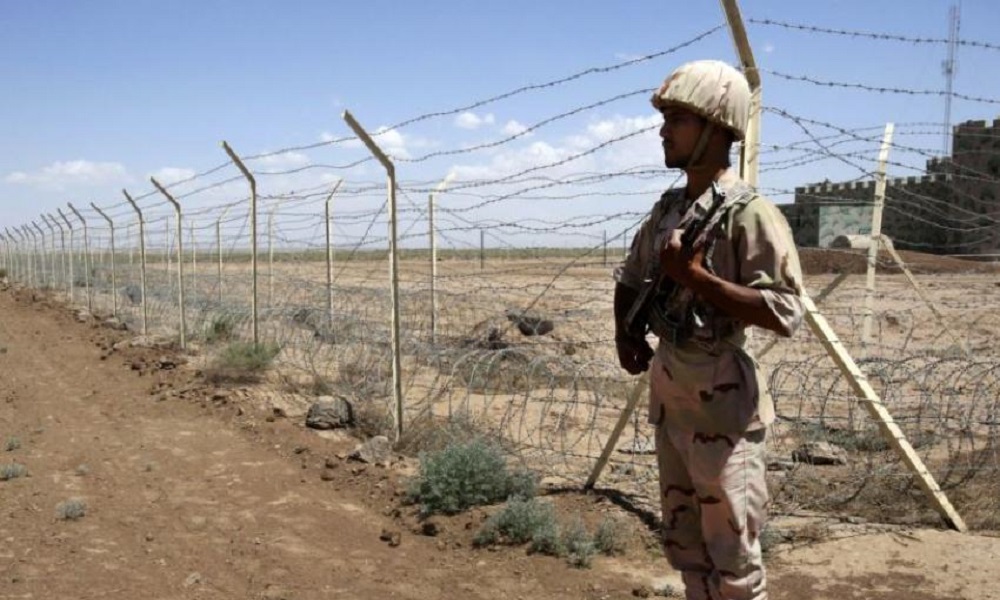
Iranian officials say work is intensely underway on the implementation of plan to block the country’s eastern border with Afghanistan.
According to Iranian media, the commander of the Ground Forces of Iran spoke on Thursday at a ceremony in the city of Mashhad about the sealing of the country’s borders with Afghanistan.
Kioumars Heydari added: “According to the measures contemplated by the Islamic Republic, we are in the process of sealing the borders.”
He did not specify the exact timing for the completion of the border sealing plan between Iran and Afghanistan, but added: “Our estimate is that the sealing of the eastern border of the country will be completed as soon as possible.”
Afghanistan and Iran share more than 900 kilometers of common border.
Experts, meanwhile, believe that this will cause a change in dealings with Afghan immigrants.
The Islamic Emirate, however, says fencing on the borders of Iran and Afghanistan will proceed in coordination with the Afghan government.
According to experts, Iran is seeking to solve its security concerns and will spend a lot of money in the process of blocking the border but this border wall will be finished for the benefit of both countries, and drug trafficking and movement of terrorist groups will be at least under control.
Latest News
Pakistan rejects IEA’s allegations of Daesh using its territory against Afghanistan
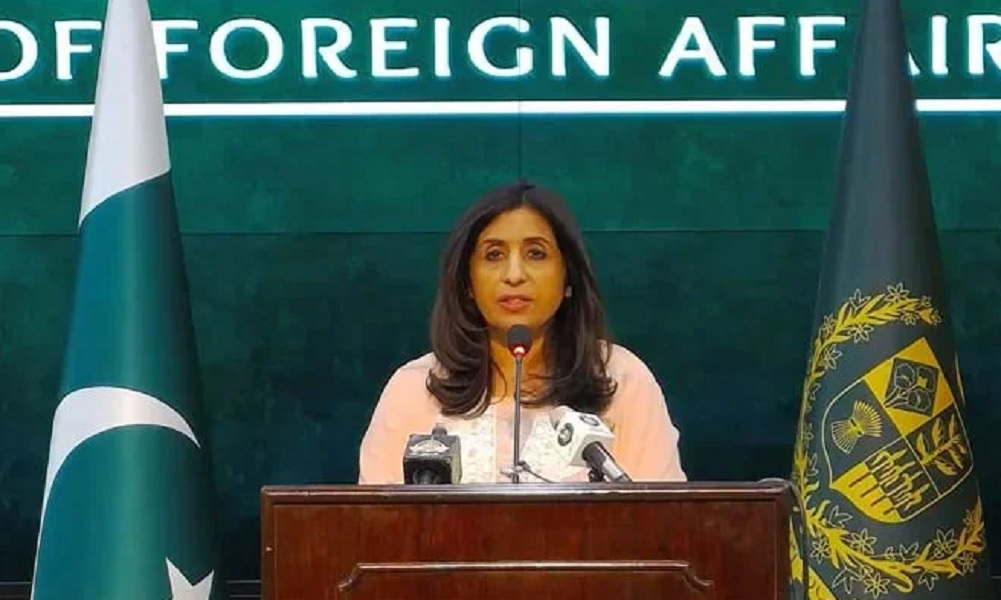
The Ministry of Foreign Affairs of Pakistan on Thursday rejected the statements of the Islamic Emirate regarding the use of Pakistan’s soil against Afghanistan by Daesh, calling the remarks as “unwarranted and irresponsible.”
Mumtaz Zahra Baloch, spokesperson of Pakistan’s Ministry of Foreign Affairs, said in a press conference that instead of such statements, the Afghan authorities should take effective action against all terror groups, based in Afghanistan.
Earlier, the Pakistan Army claimed that last month’s suicide attack that killed five Chinese nationals in Khyber Pakhtunkhwa had been planned in Afghanistan and had been carried out by an Afghan.
In reaction, a spokesman for the Ministry of Defense of Afghanistan, Inayatullah Khwarazmi, said that in an area of Khyber Pakhtunkhwa, which is under the security of the Pakistan Army, the killing of Chinese nationals is either the weakness of the security institutions or their cooperation with the attackers.
He also said: “We have cases where the Daesh entered Afghanistan from Pakistan, and Pakistani soil was used against our soil, and the attacks are planned in that country.”
Pakistan has repeatedly claimed that Afghan soil is being used in attacks against Pakistan, but this was the first time the Islamic Emirate accused Pakistan of not preventing Daesh from entering Afghanistan.
-

 Business5 days ago
Business5 days agoAfghanistan’s Turkey-bound goods via rail cross Tehran
-

 Latest News5 days ago
Latest News5 days agoOIC summit urges IEA to respect girls’ right to education
-
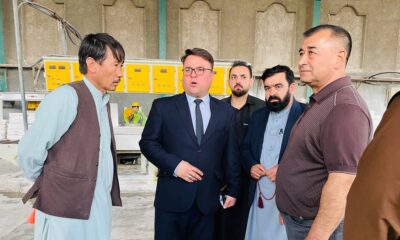
 Business4 days ago
Business4 days agoTurkmenistan’s industrialists keen to buy Herat-made construction material
-

 Sport5 days ago
Sport5 days agoAbu Muslim humiliate Maiwand with 9-1 win; Sohrab Afghan scores 5 goals
-

 World5 days ago
World5 days agoIsraeli authorities raid Al Jazeera after shutdown order
-
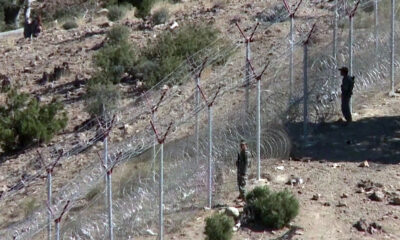
 Latest News4 days ago
Latest News4 days agoIranian official: Only vulnerable points of Afghanistan’s border will be walled and fenced
-

 World4 days ago
World4 days agoHamas says it accepts ceasefire proposal of Egypt, Qatar
-
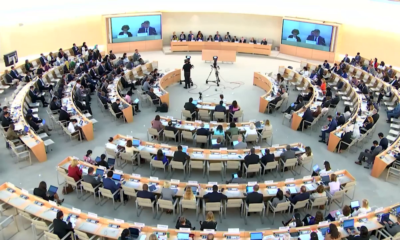
 Latest News5 days ago
Latest News5 days agoUNHRC approves national human rights report on Afghanistan


